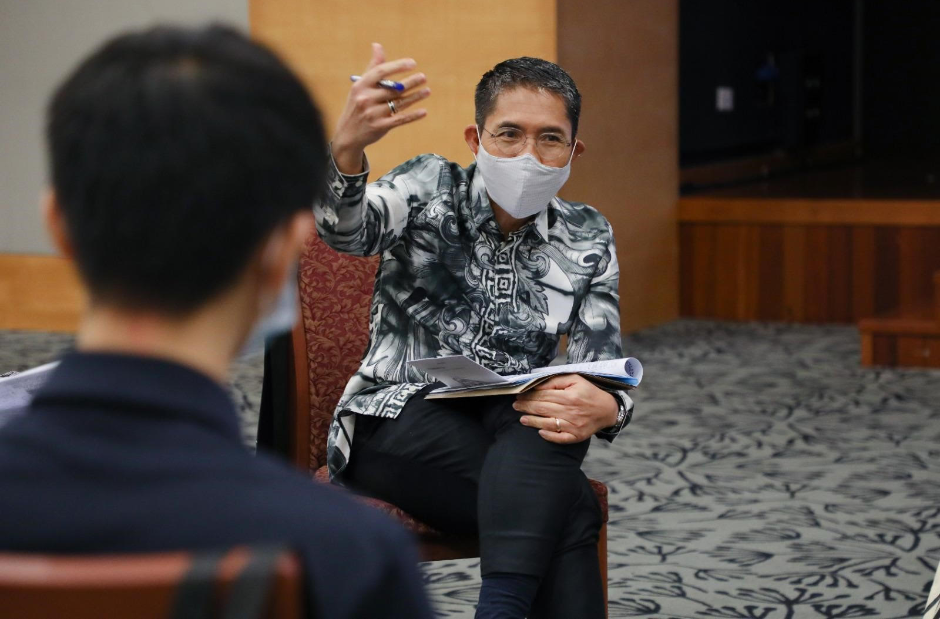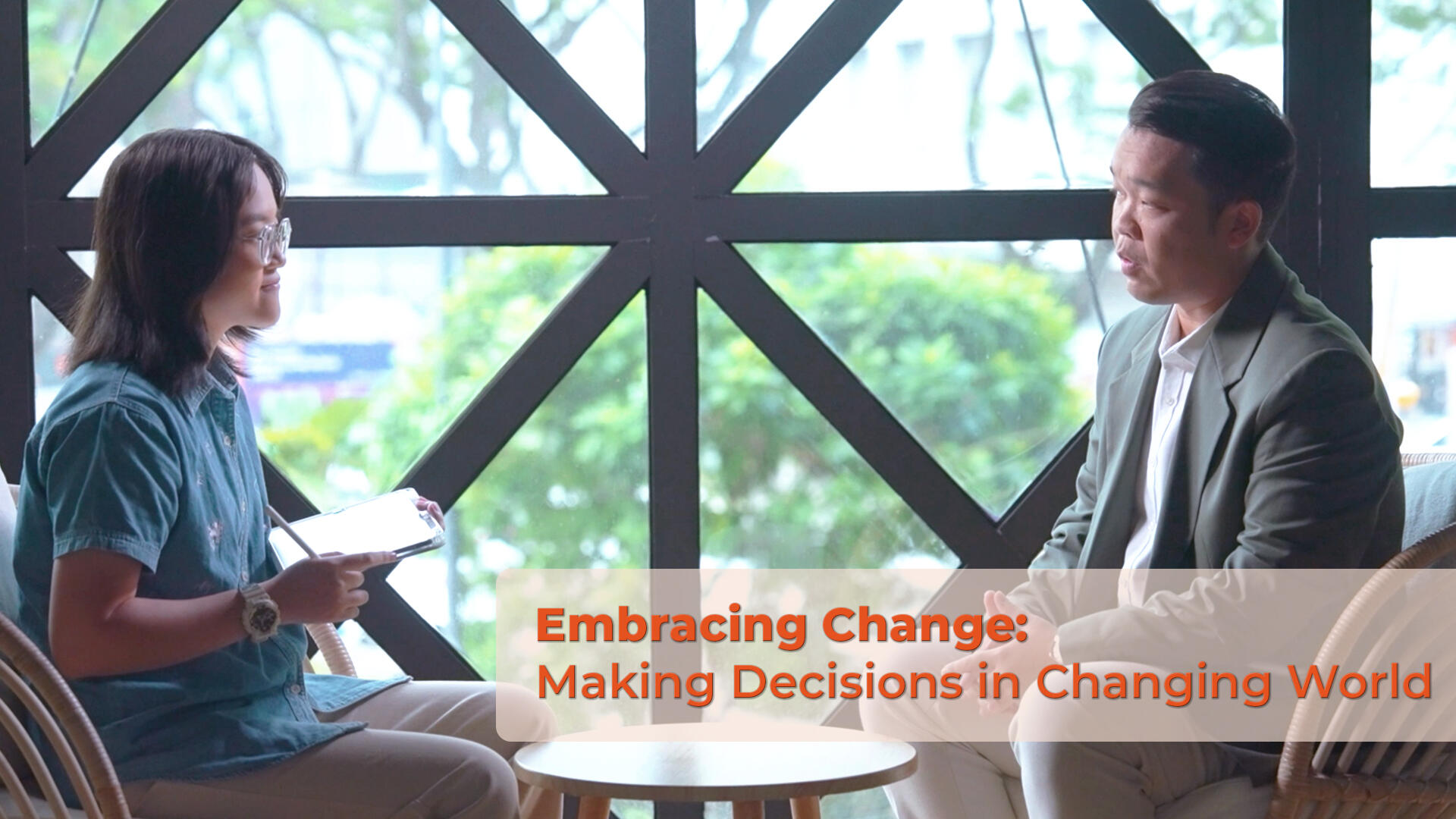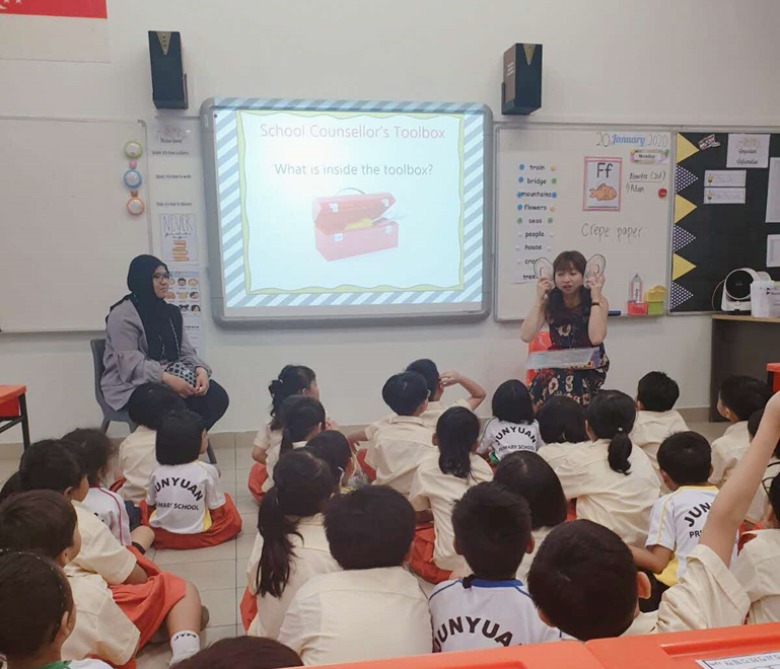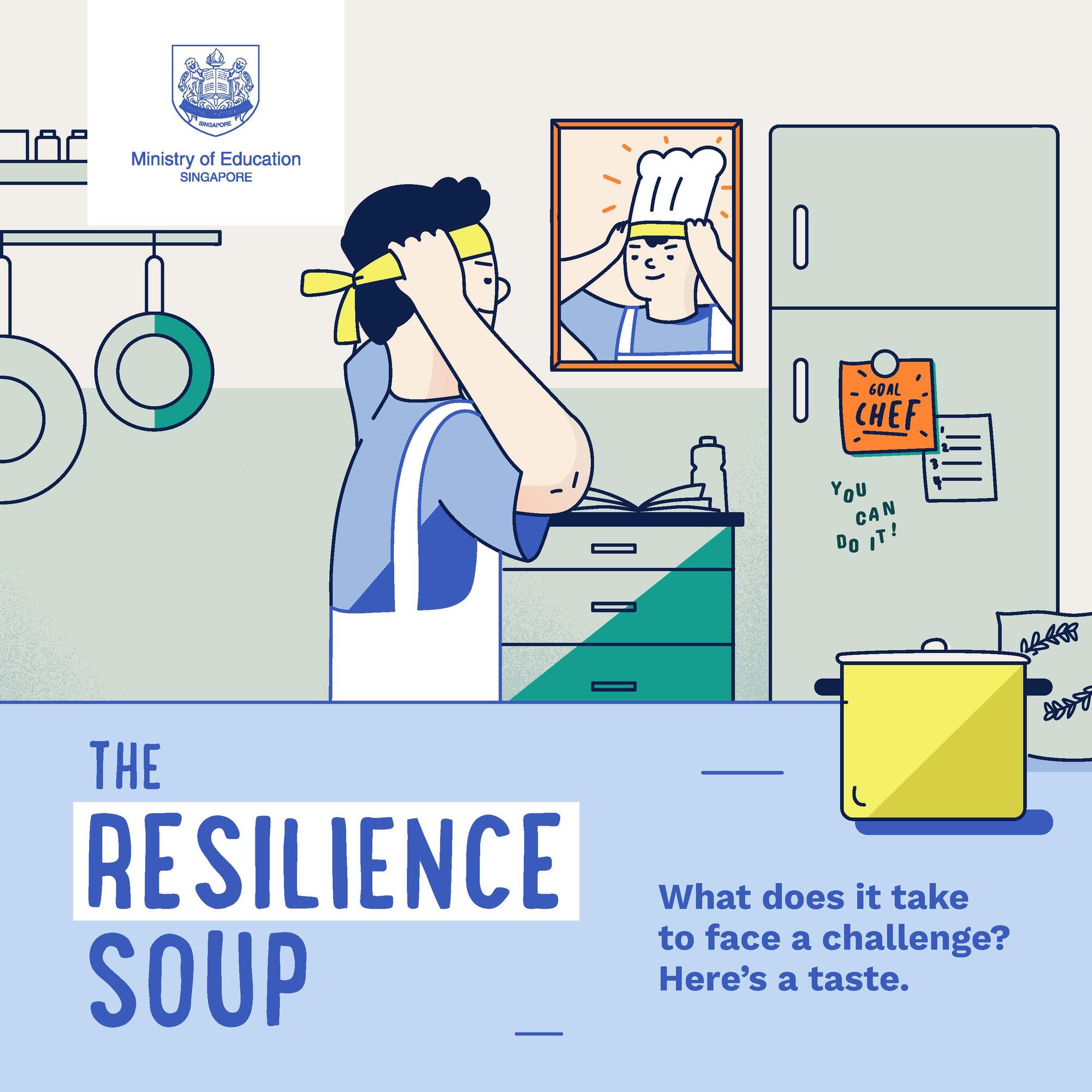Always there, just in case
15 Oct 2021

What is the TBK mattress and how is it linked to mental health? In this article by Second Minister for Education Dr Maliki Osman, he speaks affectionately of TBK, the ‘just-in-case’ mattress that he and his wife keep under their bed for whenever their children need to ‘camp over’ for a good heart-to-heart talk. He also shares how parents play a critical role in managing their children’s mental health, how schools provide multiple points of support, and how there should be no shame in seeking help when children have trouble coping with life’s pressures.
When my two children were young, there was always an extra mattress tucked away under our bed, in our bedroom.
My wife and I had a practical reason for it.
If either child fell sick, our room would be turned into a sick bay. We would pull the mattress from under our bed and they would sleep next to us. As parents, we felt more at ease to be able to monitor our kids and provide medical care to them through the night.
As they grew older, we decided to leave this comfortable mattress under the bed in our room, “just in case”. And our kids did find their way there, on good days (when they treated it like a campsite for some family fun with us) and on bad days (when they needed to hang around us for some moral support or to cry away their stresses). It even has a name – TBK – which stands for Tilam Bawah Katil in Malay, or ‘Mattress Under the Bed’.
I think just knowing we were always there for them, like the TBK, gave them a cushion against any challenges and frustrations that came with their teenage and young adult years.
All said, the frequent interactions and closeness that we share doesn’t mean that our family was free of ups and downs. Like other children, both our kids had their fair share of challenges while growing up, such as with their schoolwork. And each time, we would reiterate that their emotional well-being, good character and sound values matter the most to us, not their grades.
Even then, we know it is not easy.
As parents strive to give their best to their children, children too want to please their parents all the time. What is more important to us is that our children know they can turn to us at their weakest moments and confide in us.
I believe that those vital moments – when Adli or Lidia chose to seek our counsel – was the result of many shared moments prior, from family outings, watching movies and meal times together, to reading bedtime books and our heart-to-heart conversations held on our TBK in our bedroom. Even today, when they are both working adults, our TBK mattress is always there for them, as comfortable as ever, and for us to give them all the comforting they need from us.
How our children can thrive in the face of pressure
Our children and youth live in a far more complex and demanding world today than what we experienced, which is intensified by what they experience online. While we as parents and family members do our part to enable our children to thrive in the face of these pressures, I am glad to note that schools are also supporting in active partnership and keep in step with the current climate.
This year, the Ministry of Education started implementing the revised Character and Citizenship Education (CCE) curriculum. It includes mental health education and the strengthening of cyber wellness against the backdrop of contemporary challenges such as excessive digital use and unhealthy social comparisons on social media. The curriculum also helps students to deal with adolescent developmental issues of identity, self-esteem and social acceptance.
.jpg)
As part of mental health education, students are taught how to recognise and manage their emotions, identify signs of distress, reframe negative thinking patterns and seek help when they need to. More importantly, they should recognise that these are natural developmental journeys for everyone.
We introduced Specialised CCE Teachers (SCTs), teachers who are trained to facilitate discussions on complex topics and can support other teachers in the same.
Meanwhile, we also acknowledge that children, especially teens, often prefer to turn to their peers for a listening ear. As such, we are introducing across all schools a peer support system, and selected students are trained as Peer Support Leaders to better assist their classmates. Furthermore, through CCE, every student is equipped to be kind and caring, to offer their friends practical help and emotional support, and to be a positive influence to one another.
Seeking help is a means of coping and not a failure to cope
At the end of the day, when it comes to our children’s mental health and wellbeing, a whole network of support is required, from parents, extended families, schools and the community at large. And we should not look upon mental health issues as something to be skimmed over or embarrassed about.
Words such as “it’s a small thing, just deal with it”, or “it’s just a phase, it’ll pass”, may not be useful advice and could even be detrimental to someone who is already brittle and unable to articulate his or her struggle.
We need an ecosystem that encourages our youth to step forward early should they need help and provide a clear message that “seeking help is a means of coping and not a failure to cope”. This will reduce the stigma that has always been associated with mental health issues and fear amongst many to step forward to seek help.
When I think back to the time when my children were in school, I appreciate the sharing and partnership between parents and teachers in our children’s development. We know that we all want the best for our children. In this regard, let’s be generous with our words of affirmation and motivation and show acts of unconditional love and holistic support to our children. It will go a long way in bolstering our children’s mental wellbeing. TBK is my wife’s and my secret; I am sure you will have your own special way!
Let’s all play our part to help our children to navigate safely and confidently as they make their way into the world.
A version of this commentary first appeared in Malay in Berita Harian.

.jpg)



